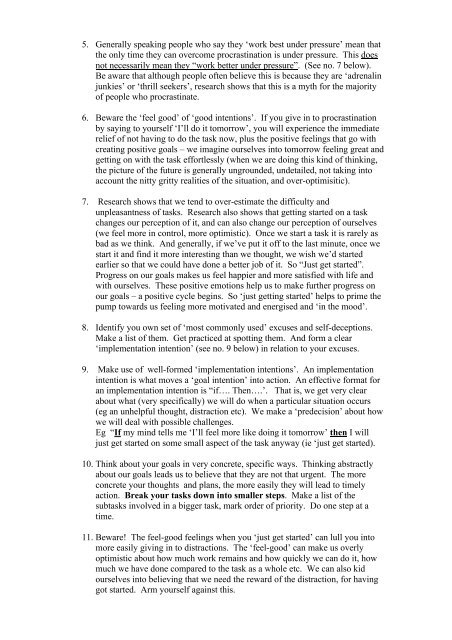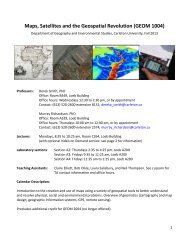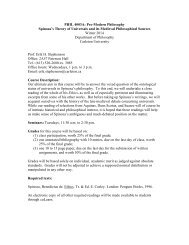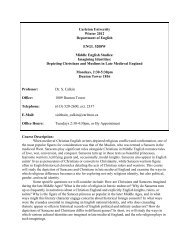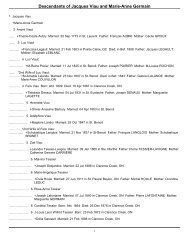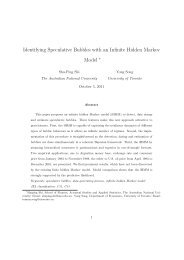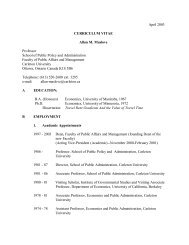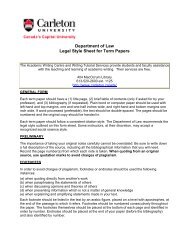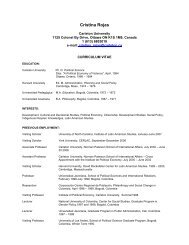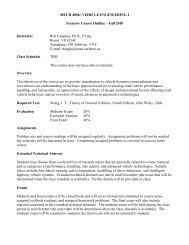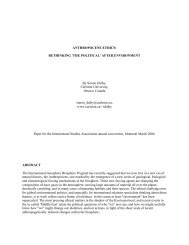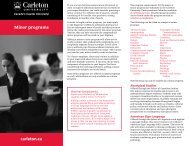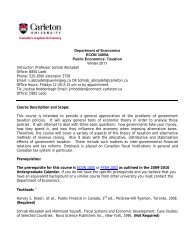20 Tips to Reduce Academic Procrastination
20 Tips to Reduce Academic Procrastination
20 Tips to Reduce Academic Procrastination
Create successful ePaper yourself
Turn your PDF publications into a flip-book with our unique Google optimized e-Paper software.
5. Generally speaking people who say they ‘work best under pressure’ mean thatthe only time they can overcome procrastination is under pressure. This doesnot necessarily mean they “work better under pressure”. (See no. 7 below).Be aware that although people often believe this is because they are ‘adrenalinjunkies’ or ‘thrill seekers’, research shows that this is a myth for the majorityof people who procrastinate.6. Beware the ‘feel good’ of ‘good intentions’. If you give in <strong>to</strong> procrastinationby saying <strong>to</strong> yourself ‘I’ll do it <strong>to</strong>morrow’, you will experience the immediaterelief of not having <strong>to</strong> do the task now, plus the positive feelings that go withcreating positive goals – we imagine ourselves in<strong>to</strong> <strong>to</strong>morrow feeling great andgetting on with the task effortlessly (when we are doing this kind of thinking,the picture of the future is generally ungrounded, undetailed, not taking in<strong>to</strong>account the nitty gritty realities of the situation, and over-optimisitic).7. Research shows that we tend <strong>to</strong> over-estimate the difficulty andunpleasantness of tasks. Research also shows that getting started on a taskchanges our perception of it, and can also change our perception of ourselves(we feel more in control, more optimistic). Once we start a task it is rarely asbad as we think. And generally, if we’ve put it off <strong>to</strong> the last minute, once westart it and find it more interesting than we thought, we wish we’d startedearlier so that we could have done a better job of it. So “Just get started”.Progress on our goals makes us feel happier and more satisfied with life andwith ourselves. These positive emotions help us <strong>to</strong> make further progress onour goals – a positive cycle begins. So ‘just getting started’ helps <strong>to</strong> prime thepump <strong>to</strong>wards us feeling more motivated and energised and ‘in the mood’.8. Identify you own set of ‘most commonly used’ excuses and self-deceptions.Make a list of them. Get practiced at spotting them. And form a clear‘implementation intention’ (see no. 9 below) in relation <strong>to</strong> your excuses.9. Make use of well-formed ‘implementation intentions’. An implementationintention is what moves a ‘goal intention’ in<strong>to</strong> action. An effective format foran implementation intention is “if…. Then….’. That is, we get very clearabout what (very specifically) we will do when a particular situation occurs(eg an unhelpful thought, distraction etc). We make a ‘predecision’ about howwe will deal with possible challenges.Eg “If my mind tells me ‘I’ll feel more like doing it <strong>to</strong>morrow’ then I willjust get started on some small aspect of the task anyway (ie ‘just get started).10. Think about your goals in very concrete, specific ways. Thinking abstractlyabout our goals leads us <strong>to</strong> believe that they are not that urgent. The moreconcrete your thoughts and plans, the more easily they will lead <strong>to</strong> timelyaction. Break your tasks down in<strong>to</strong> smaller steps. Make a list of thesubtasks involved in a bigger task, mark order of priority. Do one step at atime.11. Beware! The feel-good feelings when you ‘just get started’ can lull you in<strong>to</strong>more easily giving in <strong>to</strong> distractions. The ‘feel-good’ can make us overlyoptimistic about how much work remains and how quickly we can do it, howmuch we have done compared <strong>to</strong> the task as a whole etc. We can also kidourselves in<strong>to</strong> believing that we need the reward of the distraction, for havinggot started. Arm yourself against this.


